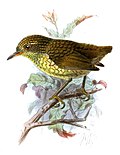
Ornithology is a branch of zoology that concerns the study of birds. Several aspects of ornithology differ from related disciplines, due partly to the high visibility and the aesthetic appeal of birds. It has also been an area with a large contribution made by amateurs in terms of time, resources, and financial support. Studies on birds have helped develop key concepts in biology including evolution, behaviour and ecology such as the definition of species, the process of speciation, instinct, learning, ecological niches, guilds, island biogeography, phylogeography, and conservation.

Plovers are members of a widely distributed group of wading birds of family Charadriidae. The term "plover" applies to all the members of the family, though only about half of them include it in their name.

The fish crow is a species of crow associated with wetland habitats in the eastern and southeastern United States.

The common moorhen, also known as the waterhen or swamp chicken, is a bird species in the rail family (Rallidae). It is distributed across many parts of the Old World, from Africa to Europe and Asia.

The asities are a family of birds, Philepittidae, that are endemic to Madagascar. The asities consist of four species in two genera. The Neodrepanis species are known as sunbird-asities and were formerly known as false sunbirds.

The ring-billed gull is a medium-sized gull. The genus name is from Latin Larus which appears to have referred to a gull or other large seabird. The specific delawarensis refers to the Delaware River.

The pileated woodpecker is a large, mostly black woodpecker native to North America. An insectivore, it inhabits deciduous forests in eastern North America, the Great Lakes, the boreal forests of Canada, and parts of the Pacific Coast. It is the largest confirmed extant woodpecker species in North America, with the possible exception of the ivory-billed woodpecker, which the U.S. Fish and Wildlife Service has proposed be reclassified as extinct. It is also the third largest species of woodpecker in the world, after the great slaty woodpecker and the black woodpecker. "Pileated" refers to the bird's prominent red crest, from the Latin pileatus meaning "capped".
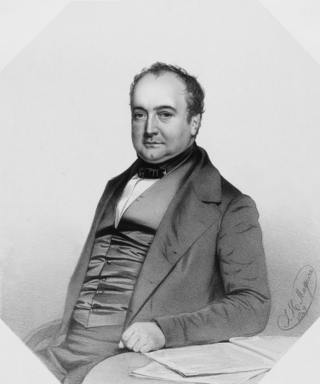
Charles Lucien Jules Laurent Bonaparte, 2nd Prince of Canino and Musignano was a French naturalist and ornithologist, and a nephew of Napoleon. Lucien and his wife had twelve children, including Cardinal Lucien Bonaparte.

The Arctic redpoll or hoary redpoll is a bird species in the finch family Fringillidae. It breeds in tundra birch forest. It has two subspecies, A. h. hornemanni of Greenland and neighbouring parts of Canada, and A. h. exilipes, which breeds in the tundra of northern North America and the Palearctic. Many birds remain in the far north; some birds migrate short distances south in winter, sometimes travelling with common redpolls.

The American Ornithological Society (AOS) is an ornithological organization based in the United States. The society was formed in October 2016 by the merger of the American Ornithologists' Union (AOU) and the Cooper Ornithological Society. Its members are primarily professional ornithologists, although membership is open to anyone with an interest in birds. The society publishes the two scholarly journals, Ornithology and Ornithological Applications as well as the AOS Checklist of North American Birds. The American Ornithological Society claims the authority to establish standardized English bird names throughout North and South Americas.
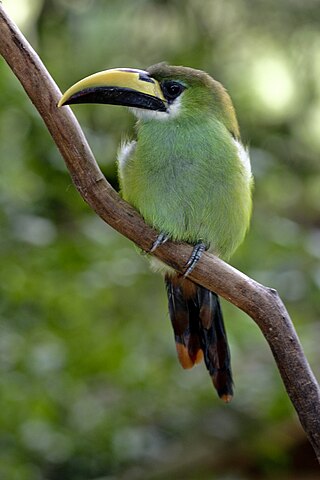
The emerald toucanet is a species of near-passerine bird in the toucan family Ramphastidae. It is found from Mexico to Nicaragua.
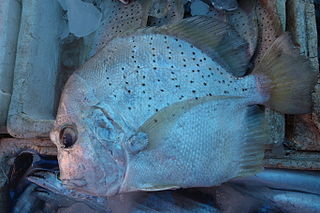
Drepane is a genus of marine and brackish water ray-finned fishes, known commonly as the sicklefishes. It is the only genus in the monotypic percomorph family Drepaneidae. These fish occur in the Indian and western Pacific Oceans, and in the eastern Atlantic near Africa.

The genus Cathartes includes medium-sized to large carrion-feeding birds in the New World vulture (Cathartidae) family. The three extant species currently classified in this genus occur widely in the Americas. There is one extinct species known from the Quaternary of Cuba.
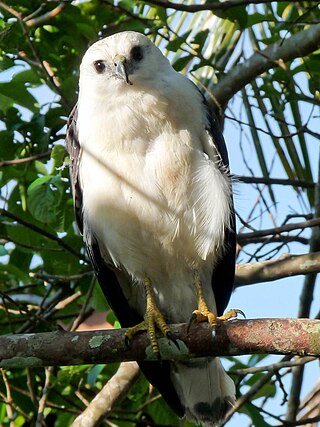
The white-necked hawk is a Vulnerable species of bird of prey in the subfamily Accipitrinae, the "true" hawks, of family Accipitridae. It is endemic to Brazil.
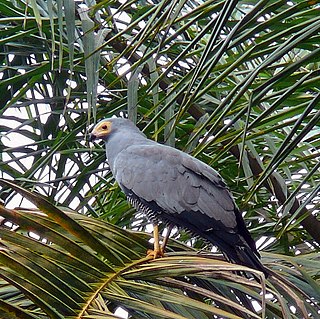
Polyboroides is a genus of bird of prey in the family Accipitridae. This genus has two recognized species found in Sub-Saharan Africa and Madagascar. The two species are allopatric and restricted to the Afrotropical realm. They are generally known as harrier-hawks.
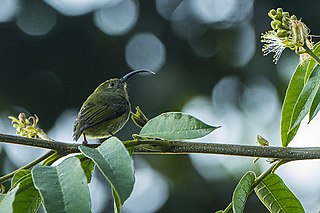
The common sunbird-asity or sunbird asity is a species of bird in the family Philepittidae. It is endemic to Madagascar. Its natural habitat is subtropical or tropical moist lowland forests.

The velvet asity is a species of bird in the family Philepittidae. It is endemic to Madagascar.

Philepitta is a genus of bird in the family Philepittidae. Established by Isidore Geoffroy Saint-Hilaire in 1838, the genus contains the following species:

eBird is an online database of bird observations providing scientists, researchers and amateur naturalists with real-time data about bird distribution and abundance. Originally restricted to sightings from the Western Hemisphere, the project expanded to include New Zealand in 2008, and again expanded to cover the whole world in June 2010. eBird has been described as an ambitious example of enlisting amateurs to gather data on biodiversity for use in science.
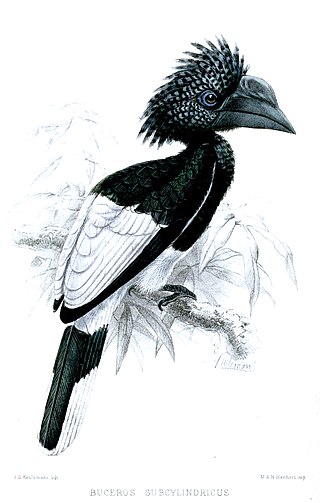
Birds described in 1870 include Recurve-billed bushbird, Beautiful woodpecker, Philepittidae, Cantorchilus semibadius, Chinese barbet, White-naped seedeater, Belem curassow,























